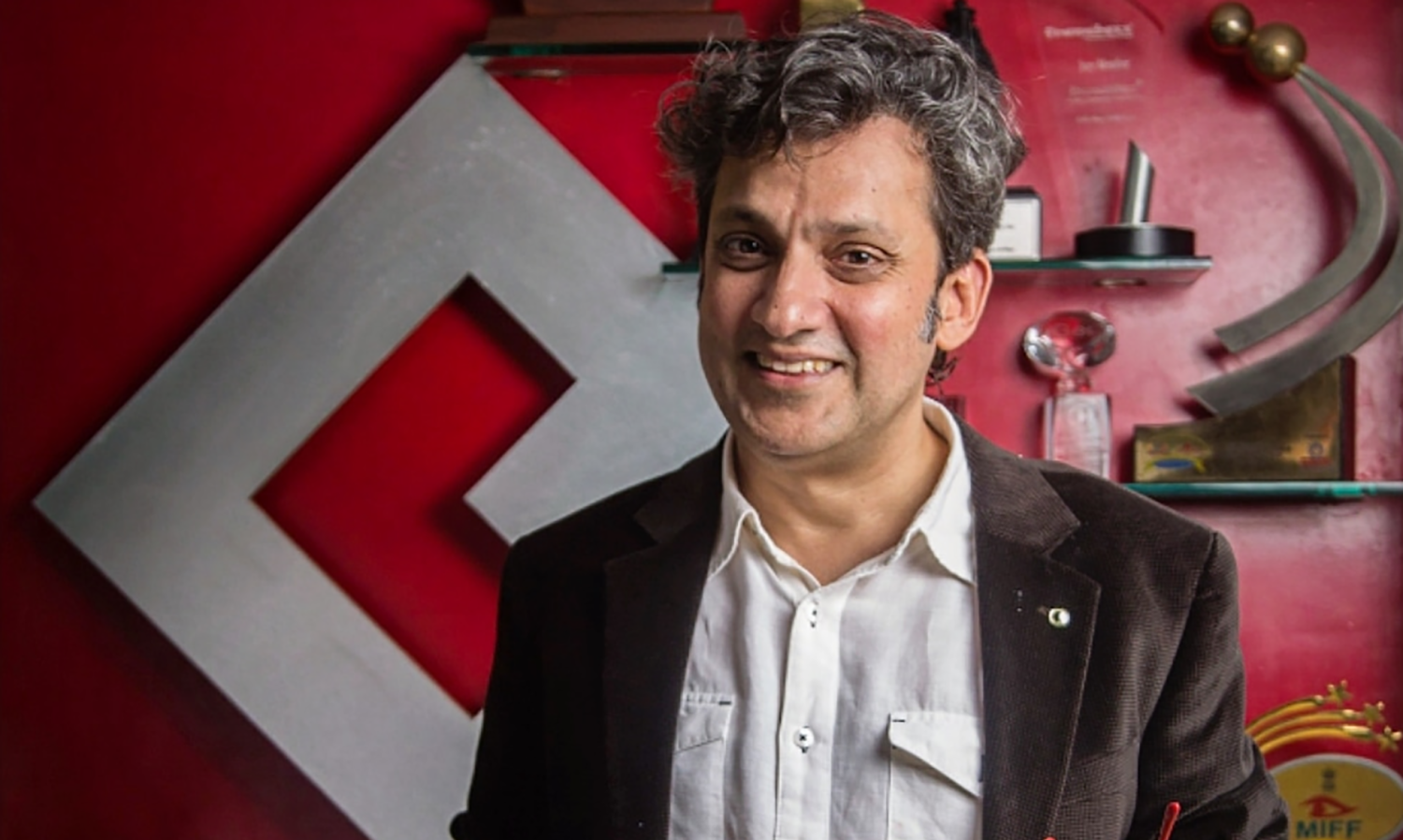The director speaks about the long journey from script to screen of his film that had its world premiere as the London Indian Film Festival's 'centrepiece gala' yesterday.
T For Taj Mahal is the journey of a man wanting to bring literacy to his village: Kireet Khurana
Mumbai - 24 Jun 2018 13:00 IST


Sonal Pandya
Eat and Teach. That’s the optimistic message of the upcoming film T For Taj Mahal directed by Kireet Khurana. The film had its world premiere at the Bagri Foundation London Indian Film Festival on 23 June as its centrepiece gala.
T For Taj Mahal takes place in a fictional village, Bajjar, set in the backyard of the Indian landmark, now a UNESCO World Heritage Site. Director Khurana spoke with Cinestaan.com before leaving for the festival about the challenges the unique script presented and how the film finally fell into place.
The feature film revolves around the idea of social entrepreneurship. The story focuses on one man, Bansi Pal, who takes it upon himself to educate his village.

“It’s about a man who starts a roadside dhaba [eatery] and asks his customers to teach the children of the village, instead of paying for the food. It’s a village full of illiterates and there is a makeshift school that he starts behind his dhaba. It’s the journey of this man who is actually wanting to bring literacy into his village through his social entrepreneurship,” he explained.
The journey of T For Taj Mahal began in April 2016. Khurana said the film’s idea belongs to writer Ashish Aryan. He worked on the screenplay with Aryan, adding new characters and reworking old ones. His unit finished filming by November 2016. Then tragedy stuck. T For Taj Mahal’s producer Abis Rizvi was killed in an act of terror in Istanbul, Turkey, on New Year’s Day 2017.
Khurana said, “31 December 2016, which is effectively 2017, in the morning, we lost my producer in the Turkey attack. So then the film went into post-production and it took a long time to come out. It has been a bit of a tough ride.”
The makers cast Subrat Dutta, an alumnus of the National School of Drama, as the protagonist who wants to bring literacy to his village. Khurana said of his lead actor, who has appeared in films like Talaash (2012), “He is an incredible actor. But because he is a chameleon, he plays different roles in every single film.”
The rest of the cast includes Bidita Bag from Babumoshai Bandookbaaz (2017), American actress Ali Faulkner from Twilight (2008), Pritobash from Million Dollar Arm (2014) and Veere Di Wedding’s Manoj Pahwa who plays a cook at the dhaba. Khurana called them an international cast.

At the scripting stage itself, the makers travelled to villages around Agra in Uttar Pradesh to find out how they would set up their film there.
“We wanted to know more about the situation on the ground, what is the state of the school there, what is the state of education, everything,” the director said, adding that they had their basic outline in place.
Then they had to work out the business model of the eat and teach movement.
“You are asking people to eat for free and instead you are asking them to teach. The idea is how is the business going to survive. These are genuine aspects why the initial script stalled, which is why we had to go there, we had to work out a viability model. Hypothetically, somebody wants to do it, then how does it work? We spoke to villagers, and we spent time there.”
The director explained that since most of the customers would be tourists, they wouldn’t mind being charged a bit more.
“Tourists don’t mind if Rs100 becomes Rs110. They are not price sensitive. Essentially, out of 100 customers on an average that Bansi gets, he will need only 10 teachers for a day. That means 10% of the revenue is getting hit; if he hikes the rate by 10%, it covers up. That was the rationale.”
Further, they didn’t worry about issues of continuity or curriculum in the school’s programme as an illiterate man wouldn’t even be aware of that aspect. Therefore, they had all their bases covered.

Khurana believes that though T For Taj Mahal has a strong message, it is not preachy. “It’s a veiled message. It is in the zone of what is called an impact film,” he said.
The film also explores the socio-political elements of the region, but in a subtle manner, keeping its focus on the story of a man and his aim to educate a village of illiterates.
T For Taj Mahal has begun its festival run at London and looks to be screened at other festivals around the world for the rest of the year. Khurana is hopeful that a release in India is also not far off.
“Subsequently we will look at what needs to be done in terms of a release, because the film has to gain traction at the festivals, it has to resonate with the audience,” he said.



